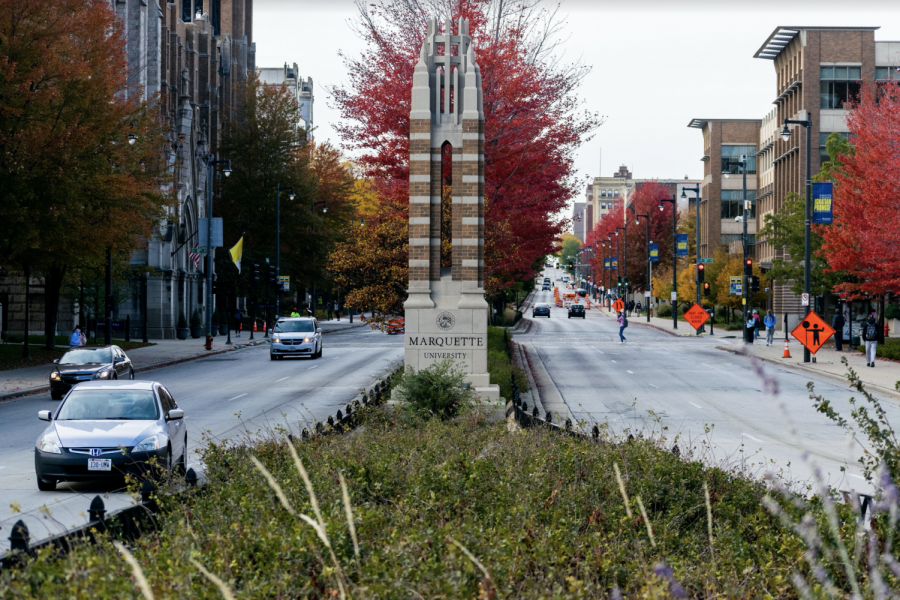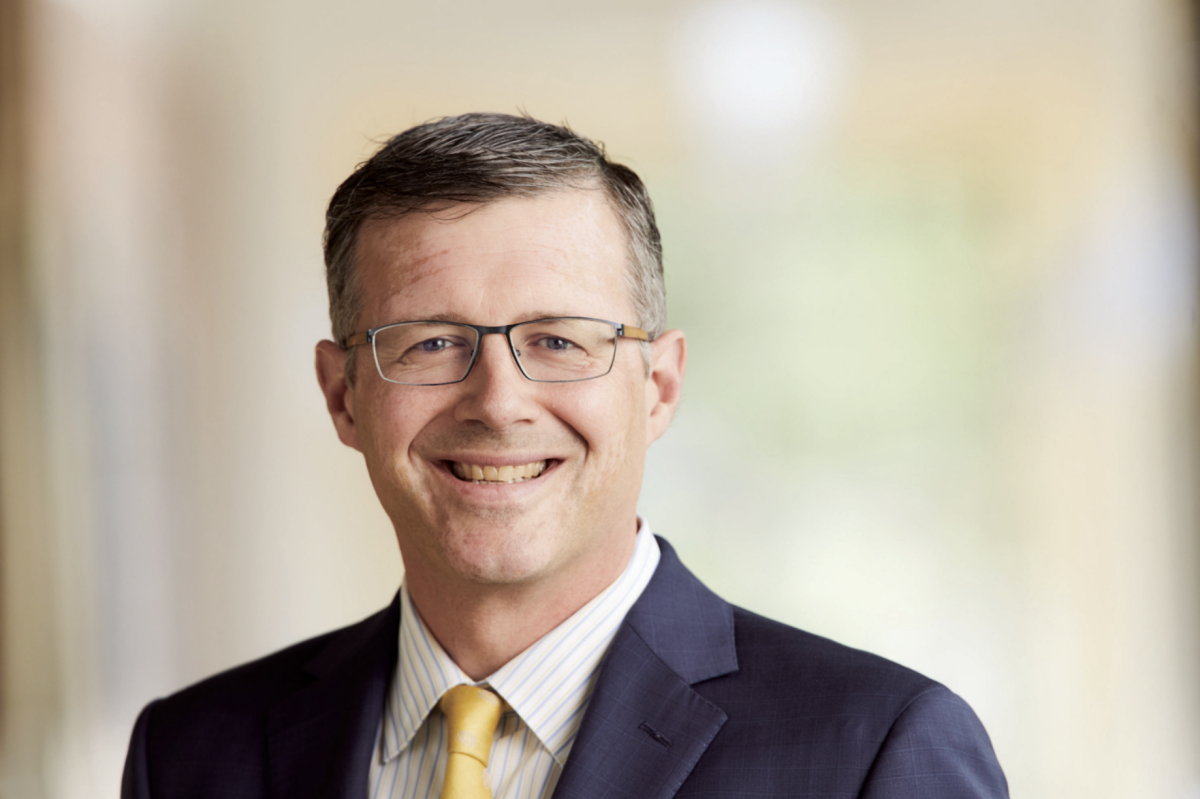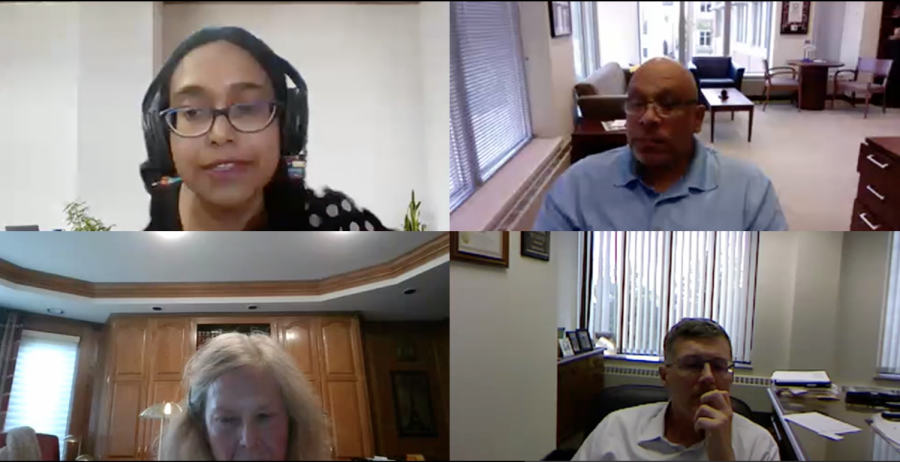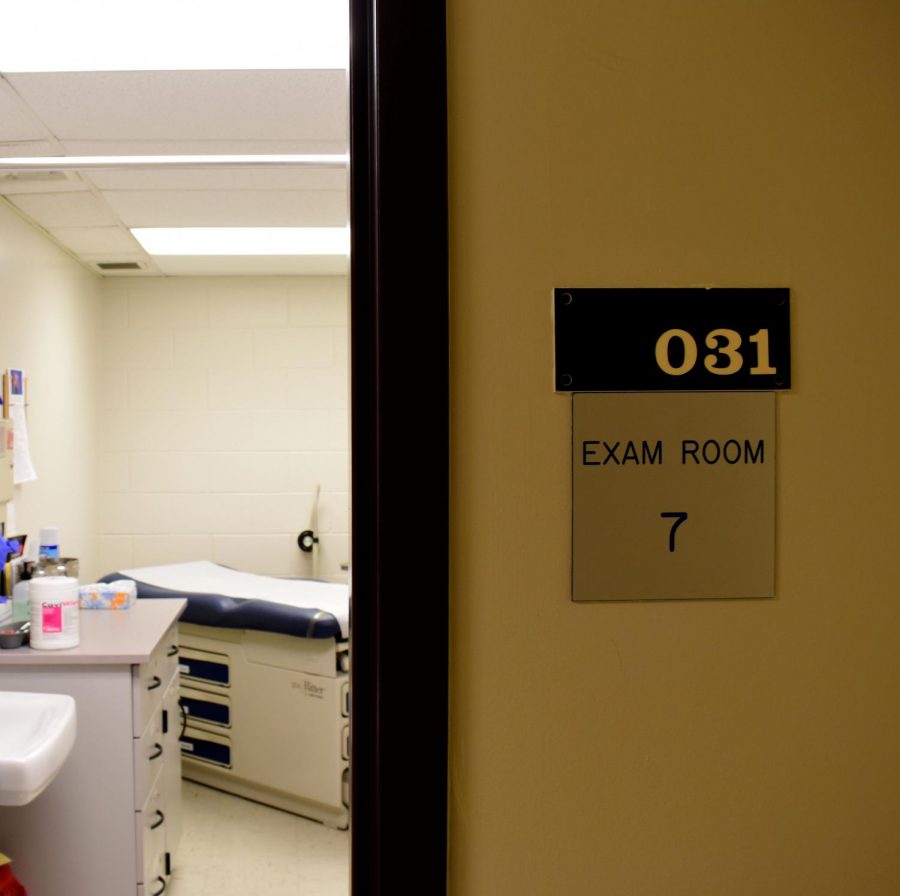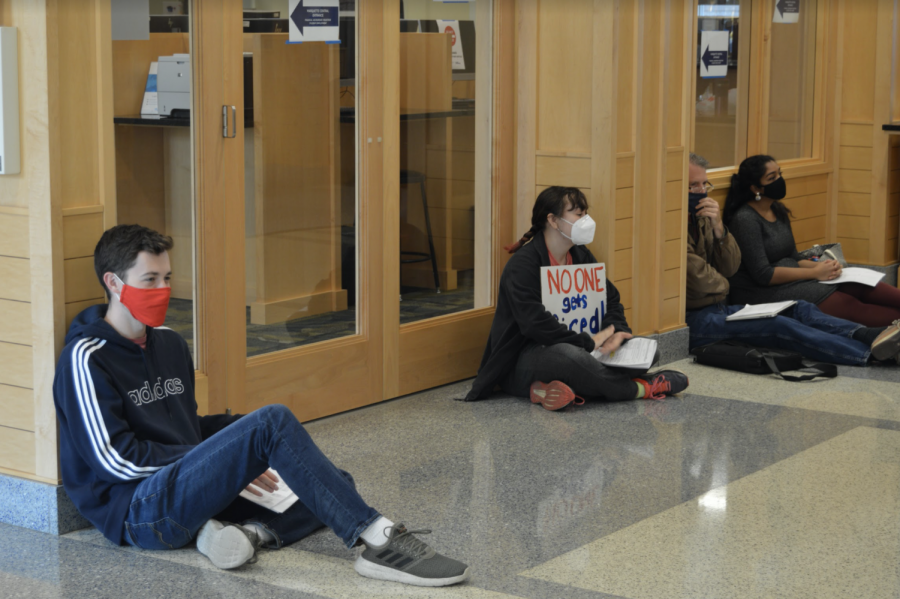Marquette is an R2 school.
Universities are each given a research status based on the Carnegie Classification of Institutions of Higher Education. There are three possibilities: R1 – doctoral universities with very high research activity, R2 – doctoral universities with high research activities and D/PU – doctoral or professional universities.
Rankings are based on the number of PhDs awarded and research expenditures, the total amount of money the university budgets for research activities. Schools in the first two categories must offer at least 20 research or doctoral degrees and must have at least $5 million in total research expenditures.
Jeanne Hossenlopp, vice president for research and innovation, said these expenditures include grants, money raised by faculty, internal resources and donor funds.
Hossenlopp has been involved with research at Marquette for over 10 years. Back then, she said Marquette’s expenditures were only about $10 million. In 2015, with expenditures just below $24 million, Hossenlopp said they had a goal of doubling that number in 5 years. It has since grown to $37.8 million in 2019.
Hossenlopp said a lot 0f new faculty knew about this goal and liked the idea of coming to a university that was striving to move.
“People heard the ambition and wanted to be part of a university that valued doing research,” Hossenlopp said.
At the Sept. 21 Academic Senate meeting, Doug Woods, dean of the graduate school, said it has never been a goal of the university to become an R1 research school. However, faculty in attendance said that while being recruited and hired, they were told attaining the R1 status was in Marquette’s future.
“(It) was a surprise to a lot of faculty,” Gerry Canavan, an associate professor of English, said.
He said the decision may affect things like student internships and grant revenue, but also retention of faculty. He said a lot of faculty would like to see Marquette reach an R1 research status.
“A lot of professors, their research is very important to them,” Canavan said. “If it’s not valued here, it’ll be valued somewhere else.”
Canavan said that he and many others want Marquette to be recognized as a great research institution.
Ericka Tucker, an associate professor of philosophy, said Marquette has strived to recruit research-active faculty, and has been successful in doing so.
“We’ve recruited the kind of faculty that regularly get counter-offers from Ivy League institutions,” Tucker said. “But people stay here because they like the class sizes, they like the city.”
Tucker explained that if teaching loads increase, those faculty might not have time for their research. Because of this, Tucker said Marquette’s “excellent” faculty will the leave the university.
“The university switched on a dime for no reason,” Tucker said.
Julia Paulk, an associate professor of Spanish, said the university has spoken of reaching R1 status for six years.
“I am bothered that the university is not transparent in acknowledging this significant change in policy and reversal of information given to faculty,” Paulk said in an email. “To stop our upward trajectory could cost the university potential grants, can reduce ability to publish in top venues, and lose the potential to attract top students and faculty.”
Paulk said she is now concerned about Marquette even being able to maintain its current R2 status, due to a push in increasing class sizes and faculty teaching loads.
“If we do not maintain even R2 status, we will fall behind peer universities and the best Jesuit universities,” Paulk said in an email. “Excellence in research and teaching go hand in hand. It will cost the university in the long run if we lose sight of that. All of the conversation right now is about university finances but without any meaningful conversation about how our core goals as a Jesuit institution will be safeguarded.”
According to a 2018 update, Villanova University and Seton Hall University, both Catholic institutions, are also R2 schools. Georgetown University is R1. University of Wisconsin-Milwaukee is a R1 school as of August 2019.
Hossenlopp said these classifications don’t necessarily measure quality of research, however. She said it is important to take into account awards and grants earned for said research.
“How you fall in the rankings is a little bit out of your control,” Hossenlopp said. “We are committed to continuing to grow.”
With faculty cuts in Marquette’s future, Hossenlopp said research will become highly collaborative. She said it will be a question of efficiency and bringing people together.
“It will be a challenge,” Hossenlopp said. “I am optimistic that there are some opportunities … to really think about how our research impacts not just our teaching but our entire Jesuit mission.”
This story was written by Alexa Jurado. She can be reached at alexa.jurado@marquette.edu.

